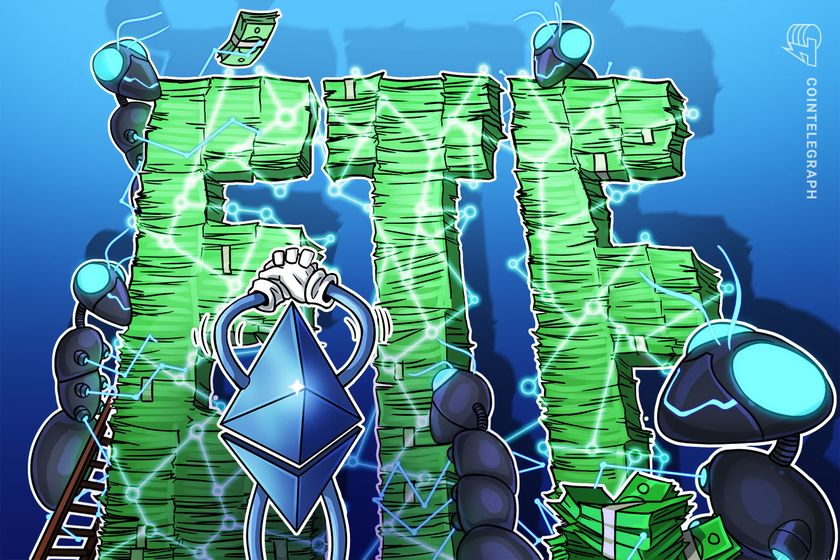The institutionalization of BTC: Mining may be more profitable than buying

Regardless of Bitcoin’s price or future economic scenarios, Bitcoin mining will be a profitable activity.
For years, institutional investors have been watching Bitcoin from afar with bewilderment and amusement, but with little to no participation. Although they were attracted by the high returns, they were scared away by Bitcoin’s infancy, lack of rules and the myriad headlines warning of hacks, bankruptcies and scams. In its early years, Bitcoin (BTC) lacked the on- and off-ramps required for most institutional investors, making it virtually impossible to get approved by any corporate investing mechanism.
Related: Why institutions suddenly give a damn about Bitcoin
Pre-2017 Bitcoin investing
But a strange thing happened in the rally of 2017. As institutions were saying it’s too risky at the corporate level, many of the insiders were buying Bitcoin personally in every way they could.
They purchased Bitcoin through exchanges, Bitcoin ATMs and participation in initial coin offerings. Many of these individuals become passionate, even obsessive, about Bitcoin, and with them, Bitcoin began digging its roots into the financial world.
Post-2017 bear market
During the bear market that followed the 2017 rally, a huge number of Bitcoin products were created and launched specifically for institutional investors. Publicly-traded Bitcoin mining companies started providing investors with exposure to the most fundamental part of the industry.
Bitcoin holdings were securitized so that investors on major exchanges could freely speculate on Bitcoin’s price without setting up and using Bitcoin wallets. Companies started taking on debt to buy and hold Bitcoin because speculating the long term appreciation on Bitcoin is worth more than the interest on the debt.
Bitcoin’s response to COVID-19
When Bitcoin fell and bounced off its approximately $4,000 low in March of 2020, the global COVID-19 pandemic was just getting started. Governments around the world largely followed the same strategy — lock people down and print more money. Lockdowns, quantitative easing and fiscal stimulus were normalized before markets could fully digest what was happening.
Markets became inefficient pricing mechanisms not because participants were acting in bad faith but because participants were acting only on faith — on faith that things couldn’t continue like this for much longer.
As cash came in daily, the market reacted almost daily without looking for valuable parking spots for their capital. The market was competing with itself on how much and how fast capital could be parked. What does a logical person invest in as nearly every economy and industry in the world shrinks and world equity prices are soaring to record highs?
Related: How has the COVID-19 pandemic affected the crypto space? Experts answer
Buying and holding Bitcoin in 2020
This time, everything was already in place for investors when they began to pay attention again. There were securitized products, on/off ramps, precedence, experience and many passionate supporters inside major institutions. Most important of all were the on/off ramps. For the first time in cryptocurrency’s history, investors were able to use their normal tools and exchanges to invest in Bitcoin safely, easily and without any special approval. With proper mechanisms in place, companies and investors did what most investors should do: buy and hold.
In the real world, the simplest solutions are usually the best. This makes intuitive sense as it seems to embrace other seemingly natural laws of life, such as the 80/20 rule or the inevitability of death and taxes.
This is true in Bitcoin as well. While there are many ways to make large amounts of money off Bitcoin, mining, day trading, speculating, etc., for most people around the world, regardless of who or where they are, the best investment strategy has simply been to buy and hold Bitcoin.
The reason for this is clear: Anybody can buy and hold Bitcoin, but almost nobody can beat the market forever. The industry is simply growing at such a tremendous pace that no one can keep track of everything that is happening now, let alone forecast the future. You have to live and breathe crypto for a chance at beating the market odds. Even so, we have seen true legends in this space completely wiped out by thinking they can do better than just holding their Bitcoin.
Related: Did Bitcoin prove itself to be a reliable store of value in 2020? Experts answer
Why BTC mining is more profitable than just holding
In the history of Bitcoin, mining has been the clear exception to the rule of “buy and hold.” If you can create a scenario with the optimal blend of cheap energy and efficient mining hardware, Bitcoin mining will be a profitable activity in almost any economic scenario and at any Bitcoin price point.
Related: Is Bitcoin a waste of energy? Pros and cons of Bitcoin mining
To prove this, we ran an opportunity-cost comparison with buying Bitcoin or buying a Bitcoin miner the day it was announced from Bitmain, operating it at $0.06 and selling enough Bitcoin to pay your electricity bills.
In every scenario, you end up with more Bitcoin from mining than holding.

This one simple economic incentive has in just seven years bootstrapped the Bitcoin mining industry into a $5-billion industry today; done right, mining is one of the most predictable and safe ways to turn your Bitcoin into more Bitcoin.
Of course, “done right” assumes one very important thing: that you will reliably and consistently operate this equipment. This is often a lot easier said than done. Bitcoin mining can be highly technical: the equipment is sparse and highly varied in its quality, performance and condition. Also, like any piece of equipment, it needs the right operating environment and skilled operators and systems to run well and cost-efficiently.
From the network’s perspective, Bitcoin doesn’t care how well or cost-effectively you mine. One terahash coming from a desert is equally valuable and indistinguishable from one terahash coming from snowy Quebec. But you as the owner will surely notice the cost difference on your bottom line, one thing is for sure: No one is in the mining business because they want less Bitcoin.
It doesn’t take a genius to make money mining in a bull market, however, it does take a genius to plan for and survive a bear market. When we brought Bitfarms to the Toronto Stock Exchange in 2018, we were surrounded by a number of large peers, most of whom did not survive to this point. Those of us who did survive the bear market have come out stronger, more experienced and better operators with operations and equipment ready to capitalize on the 2021 Bitcoin rally and survive whatever market that follows it.
This article does not contain investment advice or recommendations. Every investment and trading move involves risk, and readers should conduct their own research when making a decision.
The views, thoughts and opinions expressed here are the author’s alone and do not necessarily reflect or represent the views and opinions of Cointelegraph.









